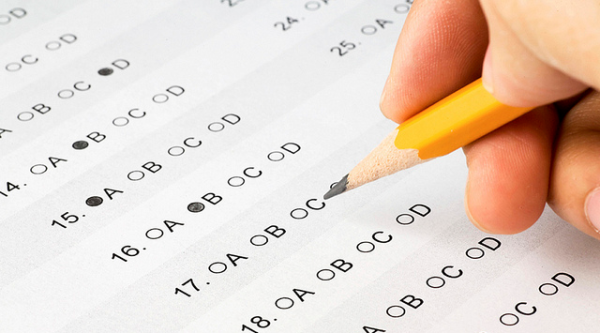
We have a saying in Michigan: There’s really only 3 seasons in our state: Winter, summer, and Road Construction season!
To that I would sadly add a fourth: Testing season. And we are now firmly entrenched in the middle of this, the worst season of all in our neck of the woods. I’ve been seeing high levels of anxiety, stress, and worry in every school I’ve visited lately–and with the inevitable technology problems that seem to crop up in these scenarios, a really alarming loss of precious instructional time, too.
In the spirit of addressing some of the most common misconceptions regarding testing, and parents’ rights to opt their children out of these tests, I offer the following primer on the myths surrounding standardized tests and opting out.
Myth #1: “My state doesn’t allow opting out”
The law is pretty clear here: It’s a parent’s right to decide the best course of study for their child–the state may not “allow” opting out, but they can also not punish children or parents for opting out.
My friend and colleague, James Kirylo, makes the case pretty thoroughly here:
As you are aware, the U.S. Constitutional rights trump local school policies. Precedents that were set forth are grounded in several legal cases. Also, as you know, according to the U.S Constitution, specifically the 14th Amendment, parental rights are broadly protected by Supreme Court decisions (Meyer and Pierce), especially in the area of education.
The Supreme Court has repeatedly held that parents possess the “fundamental right” to “direct the upbringing and education of their children.” Furthermore, the Court declared that “the child is not the mere creature of the State: those who nurture him and direct his destiny have the right coupled with the high duty to recognize and prepare him for additional obligations.” (Pierce v. Society of Sisters, 268 U.S. 510, 534-35).
The Supreme Court criticized a state legislature for trying to interfere “with the power of parents to control the education of their own.” (Meyer v. Nebraska, 262 U.S. 390, 402.) In Meyer, the Supreme Court held that the right of parents to raise their children free from unreasonable state interferences is one of the unwritten “liberties” protected by the Due Process Clause of the Fourteenth Amendment. (262 U.S. 399).
In recognition of both the right and responsibility of parents to control their children’s education, the Court has stated, “It is cardinal with us that the custody, care and nurture of the child reside first in the parents, whose primary function and freedom include preparation for the obligations the State can neither supply nor hinder.” (Prince v. Massachusetts, 321 U.S. 158) 5.
In closing, I understand that it is state and local policy to require all students to be evaluated for proficiency in various subject areas at each grade level. However, I believe that testing is not synonymous with standardized testing and request that the school and my child’s teacher(s) evaluate his or her progress using alternative (and more meaningful) measures including: projectbased assignments, teacher-made tests, portfolios, and performance-based assessments, to be determined at the discretion of the teachers and myself together.
For more from James, including the legal cases he mentions above, see: https://dianeravitch.net/2017/04/27/south-carolina-james-kirylos-children-will-not-take-the-tests/
Myth #2: “If below 95% of students don’t take the test, our school could lose federal funds”
This threat is usually delivered in a loud, shaking voice, from a district employee, or state education department worker. But it’s more bluster than legitimate warning. Not a single school has lost federal funding for falling below the 95% threshold–it’s a common threat from school administrators and school boards, but it’s an empty one.
And with the changes in federal policy, an increasingly silly one, as the amount of federal funding is dwindling.
Myth #3: “The tests provide good feedback for students and teachers”
Short answer: No, they don’t.
Longer answer: The results are not disaggregated–that is, sent back to school officials in a form that identifies how individual students have done on the exams–so the scores can’t be used by teachers to improve their work with individual students. Further, the scores often come back so long after the tests are taken that the students have moved on to a new grade or school. And the results of a test like the SAT or ACT (or the M-STEPs in Michigan) don’t really help students improve their own learning–kids receive only a “gross” score, not feedback on what items they missed, and why. The tests are for ranking and sorting, not for diagnostic purposes. So the feedback provided is pretty much useless for both students and teachers.
This is not to say that assessment is bad–it’s not. Or that there is no purpose for evaluation–there is. Or that teachers are afraid of being evaluated–they aren’t.
It is to say, however, that the best tests are those designed *by* teachers, for *their* students, with the results being used by *those* teachers to help *their* students learn better, and to improve the teacher’s own practice in the classroom.
The only purpose for those standardized tests is to rank and sort students, teachers, and schools, and to generate data from students that can be used by the testing companies to increase their profits.
And that’s no myth.



